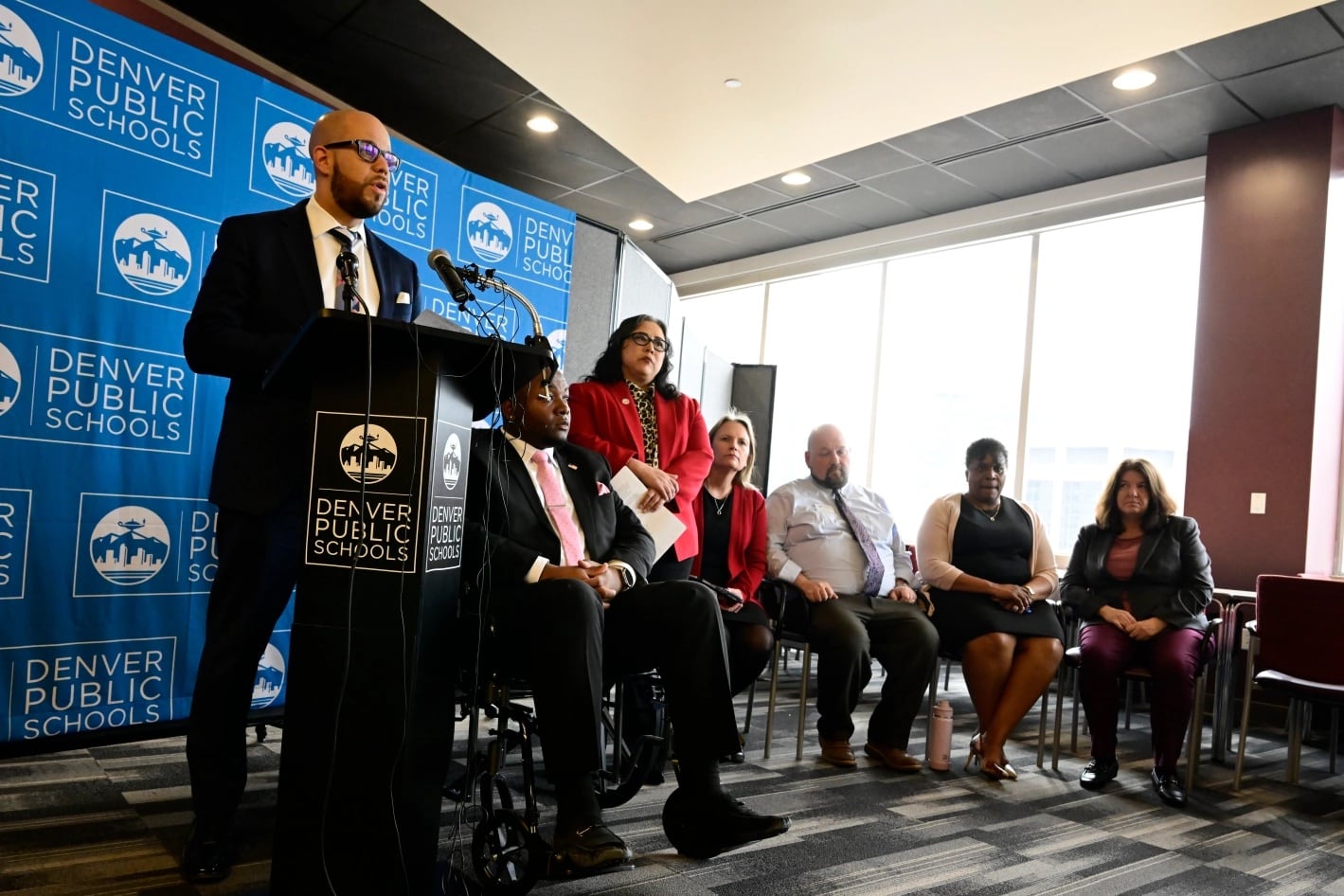The Denver school board voted unanimously Friday to release a recording of a March closed-door meeting at which board members discussed returning police officers to schools.
“In the interest of transparency of the board, it’s best that we release it now and be done with it,” board member Charmaine Lindsay said. “I don’t think anybody has anything to hide.”
However, the board voted to withhold any parts of the recording in which members discussed “confidential student information.” The March 23 closed-door meeting, called an executive session, happened one day after East High student Austin Lyle shot and injured two deans and later took his own life.
Board Vice President Auon’tai Anderson said at a press conference after the vote Friday that the board had discussed Lyle during the closed-door meeting.
Anderson also gave a brief description Friday of other topics the board had discussed, including a fear that former Denver Mayor Michael Hancock would issue an executive order reinstating police in schools without the school board’s approval.
Anderson said the board also talked about “the need to have a personnel discussion” about Superintendent Alex Marrero, the board’s sole employee. Hours after the East shooting, Marrero sent a letter to the board indicating he planned to return armed police to high schools even though it violated a board policy banning police from schools.
A coalition of news organizations, including Chalkbeat, sued Denver Public Schools to release the recording of the five-hour executive session. That lawsuit was still underway when the board voted Friday.
It was not immediately clear when or how the recording would be released. Several board members said they wanted the recording to be widely available to the public, not just to the media organizations who sued or to people who filed open records requests for it.
DPS attorney Aaron Thompson told the board that the length and format of recording may make it difficult to post the video online, and that the district may have to distribute it via USB drives.
The school board emerged from the closed-door meeting on March 23 and, with no public discussion, voted unanimously to temporarily return police officers to some high schools. The board subsequently voted in June to make that decision permanent. When school starts next month, 13 high school campuses will have a school resource officer, or SRO.
Chalkbeat and six other media organizations argued in a lawsuit that the topics of the closed-door meeting were not properly shared with the public beforehand, and that the board made its decision about returning SROs in private. State law says the “formation of public policy is public business and may not be conducted in secret.”
A Denver District Court judge listened to the recording last month and ordered DPS to release it. DPS is appealing that decision. Earlier this month, the coalition of news organizations asked a judge to hold DPS in contempt for not releasing the recording.
Late Friday afternoon, Anderson tweeted a two-minute clip from the executive session that shows he and Marrero discussing a possible executive order from Hancock. “The Board President attempted to censure me for sharing this information with our communities and the Mayor denied making this remark,” Anderson tweeted.
Board President Xóchitl “Sochi” Gaytán moved in April to censure Anderson for holding a press conference at which he talked about the potential executive order, which Gaytán alleged was confidential information. But the other school board members rejected the effort to censure Anderson.
Much of the discussion among board members Friday was not about whether to release the recording but about the timing of the meeting. The board does not typically meet in July. Gaytán called a special meeting to discuss the recording — a move questioned by board members Anderson, Michelle Quattlebaum, and Scott Esserman.
“Why now?” Quattlebaum asked. “Why the urgency during the month of July when there was no urgency in June?”
Anderson said he’d written an email to his fellow board members on June 23, the day Judge Andrew Luxen ordered DPS to release the recording, saying the district should comply. But the district appealed Luxen’s ruling instead.
“I raised this on June 23 and there was no response from anybody whatsoever on my inquiry to go ahead and release this footage,” Anderson said.
Gaytán explained that she wanted to get this issue out of the way before school starts next month. Voting now to release the recording would allow the district and board to “move on to other issues that actually impact our students positively,” she said.
Melanie Asmar is a senior reporter for Chalkbeat Colorado, covering Denver Public Schools. Contact Melanie at masmar@chalkbeat.org.








